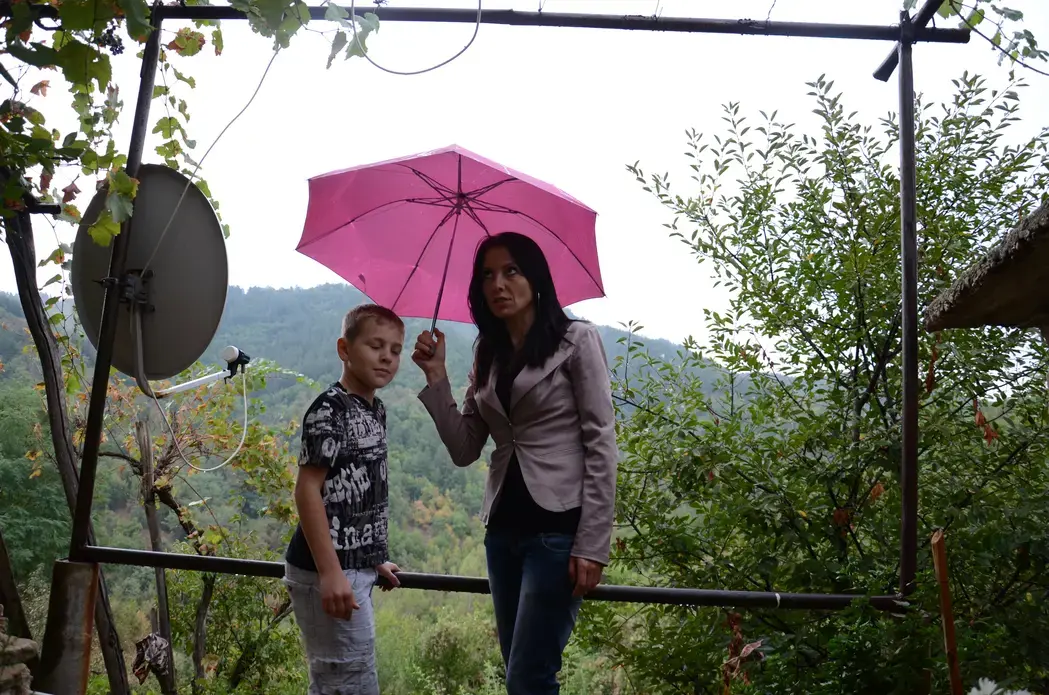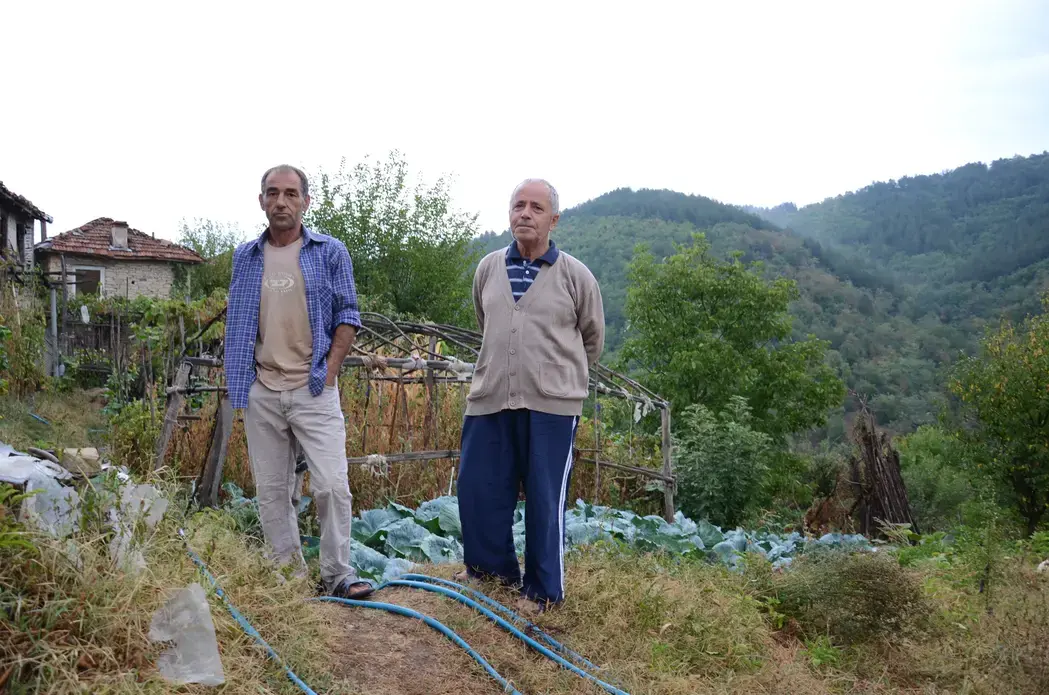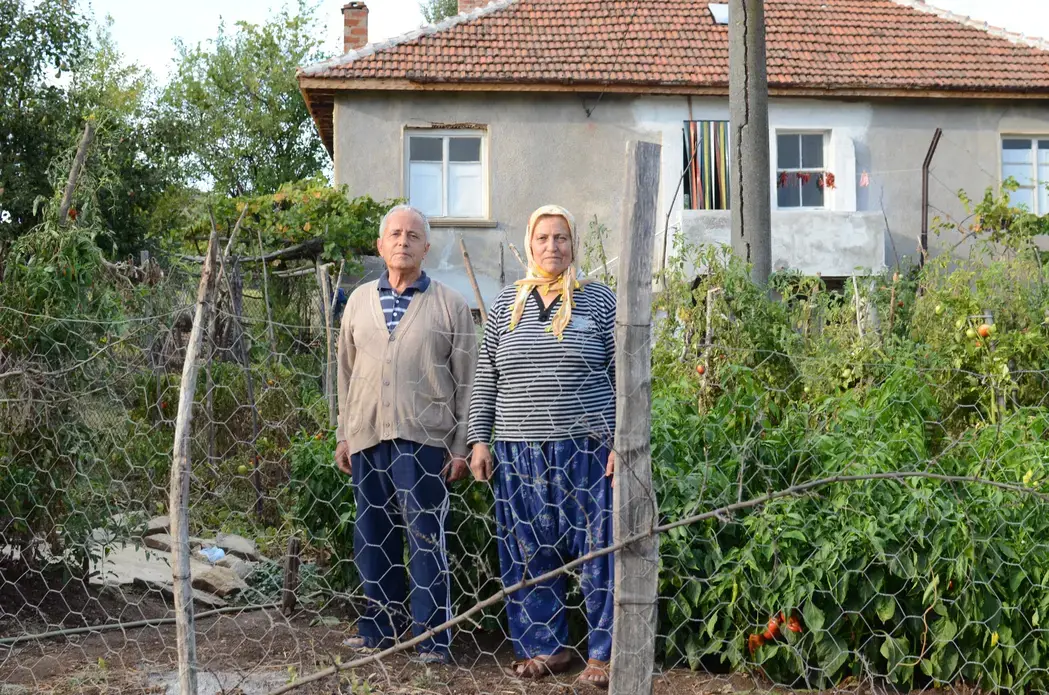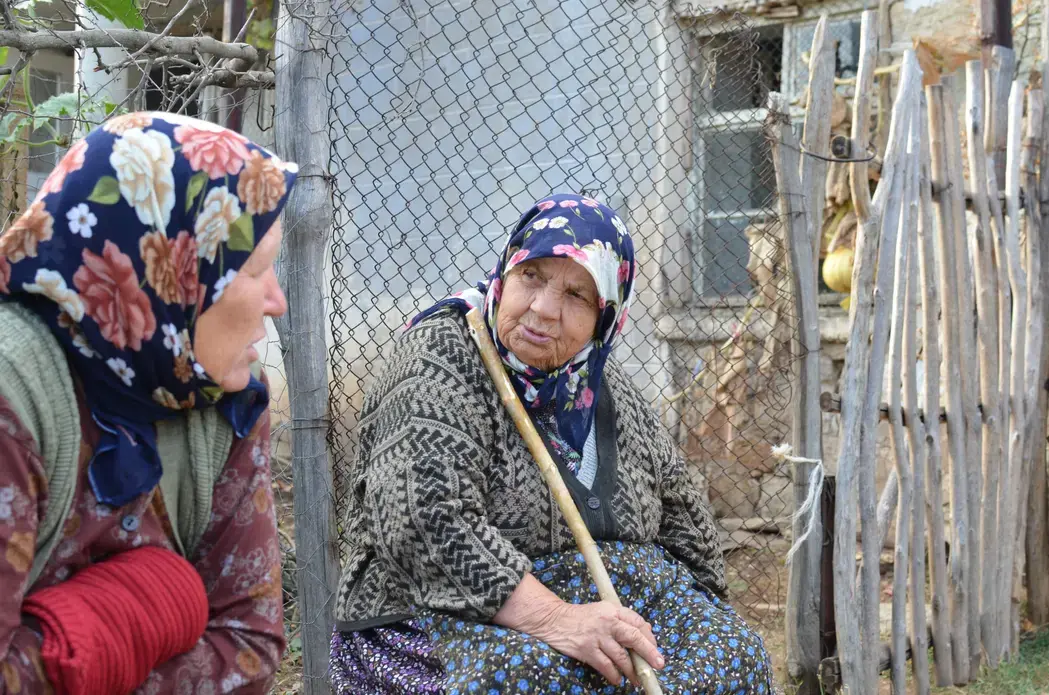The village of Ovchari, next to the town of Krumovgrad, isn't really a village. It's more like a jumble of hamlets—mahalas in Turkish—scattered across several hills, an archipelago of accidental settlements. Deep gullies, filled with an ocean of trees and bushes and brambles, separate the mahalas of Ovchari, so that to get from one part to another a visitor has to follow a rather sinuous dirt-and-gravel road over the ridges. Only shepherds and cowherds venture to take shortcuts, trekking the secret paths their animals have intuitively discovered. It is both beautiful and forbidding here, houses and plants clinging to the slopes for dear life.
I don't know how my Ford Fiesta makes it over the dirt road—dry brush and stones, like coral reefs, scrape against the bottom of the car—but after a few anxious kilometers I finally enter Ovchari, or at least the part of it locals call Emurla mahala. The houses look ancient around here, some built with river-stones perhaps a century ago, but they are not necessarily decrepit or neglected. It is quite obvious that people, although destitute, have put care into their homes, the chipped stucco mended, the broken roof-tiles fixed, the yards bedecked with orderly vegetable patches, flowerbeds, and beehives. Chickens and geese roam freely in the streets, and even the chained dogs bark feebly. It's a place where strangers could feel welcome.
The pastoral beauty is deceiving. Ovchari is, in fact, on the verge of a precipice in more ways than one. The Canadian mining company, Dundee Precious Metals, plans to create an open-pit gold mine on the nearby hill of Ada Tepe—right across the ravine from Ovchari, or less than 500 meters from the nearest house. That ravine was initially slated to be a tailings facility for the cyanide-laced waste from the gold-leaching process, but under intense civil and legal pressure in 2008 the company was forced to abandon the proposed use of cyanide, substituting it with supposedly less harmful froth flotation.
For the people of Ovchari, however, the major problem is not the method of execution of the project—the choice between cyanide and froth-flotation is like the choice between the electric chair and lethal injection. The problem is the open-pit itself, where 14 tons of explosives will be used each week, or 728 tons per year.
"Nobody wants to live a few hundred meters from the mine," Zulbie Ahmed, the mayor of Ovchari, tells me. "Our houses are old and need repair. They may not sustain the vibrations from the explosions, from the daily crushing of the ore. The air will fill up with a lot of dust which we'll breathe, our children will breathe. The only thing we have left here is our clean environment."
Though only 35, Zulbie has been a highly successful mayor for four years now, promoting an anti-mining agenda (she was reelected in October 2011 by more than 94 percent of her constituency). With loose raven hair, large ear hoops, and tight jeans, she is the antipode of most other women of Ovchari, who are dressed in conservative Muslim fashion, wearing shalwar kameez and headscarves. That disparity does not create any conflict however—Ovchari's residents know that only a modern-minded person can make a real stand against a modern mining company, and Zulbie has not disappointed them. Along with the strong-willed female mayor of Krumovgrad, Sebihan Mehmed, she has traveled to the capital city of Sofia on numerous occasions, confronting the company managers and ministry officials, and consistently voting against the mining development.
Even her Herculean efforts, she complains to me, are not enough anymore. In early November, the High Ecological Expert Council at the Ministry of Water and the Environment approved the Environmental Impact Assessment, overruling the serious opposition of the local community (only the mayors from the Krumovgrad municipality and one environmentalist voted against the project, while all the ministry experts stood firmly behind it).
"The voice of the local residents is not heard at all," Zulbie tells me, her words full of resigned desperation. "The company and the government have decided everything together, and prefer to ignore us. Not a single person from our village defended the mining development during the public hearings. But what's the point of public hearings if nobody is listening to us?"
The total population of Ovchari is 700, but only about 200 live here on a permanent basis—the rest have second homes in Turkey, where they moved in the late 1980s during the so-called Revival Process, the violent attempt by the Bulgarian communist government to change the names of Bulgarian Turks and erase their cultural identity. Yusuf Emurla (whose family gave the name of Emurla mahala) is 70 today and lives in the Turkish city of Izmir, but he comes back to his native Ovchari with his wife at least once a year to rest, plant some vegetables, and enjoy the clean air. Even though he is not a permanent resident anymore and has another home to go back to, he is horrified by the idea of the gold mine.
"I know every spot on Ada Tepe. I grew up here and lived for 50 years in the area, so every tree is dear to me and I feel connected to the native land" he says with a soft voice. "When I was young, the forest rangers would fine us if we let our cattle wander among the trees. And now the mining company wants to just tear open the breast of the mountain!"
Yusuf's house in Ovchari is one of the houses closest to the proposed open mine. He believes that if the project goes ahead he and his wife would never be able to return here anymore. He picks a ripe tomato from his garden and gives it to me.
"Try it," he tells me with a smile.
It is one of the most delicious tomatoes I have ever tasted.











